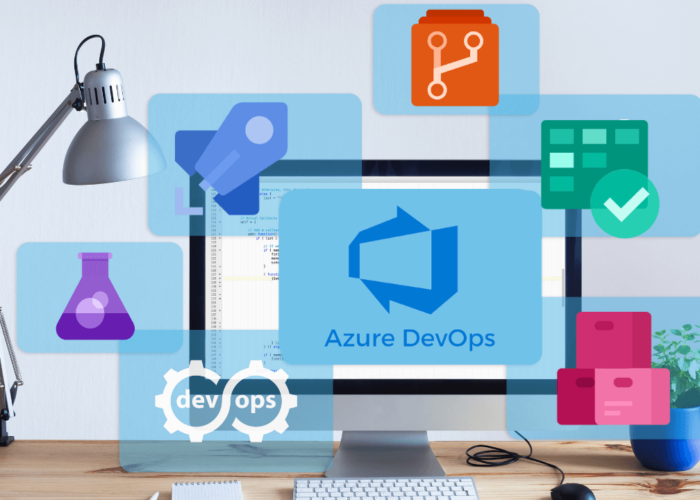Your DevOps team may or may not already be in place. In any case, if your company’s development team and operations team are about to merge, this post will come in handy! Why? Because you will learn about the DevOps tools that is revolutionizing (and transforming) these teams.
What is DevOps
Before continuing, it is important to remember what DevOps is. The term “DevOps” encompasses a multitude of concepts, techniques and practices. There are many opinions and doubts about what DevOps is: is it a culture? A methodology? A new movement in the world of software development?
-Wait, wait… Everything you need to know about DevOps and its potential here –
Having a DevOps team in your company is the best opportunity to foster significant changes in the IT culture. In this way, the adoption of new techniques and practices that promote internal software development will be easier.
Thanks to all the advantages of incorporating DevOps in any organization, the demand for DevOps profiles has not stopped growing month after month.
“DevOps, the methodology, culture or mindset that promotes the development and improvement of software, with maximum efficiency and very few interruptions.”
The addition of DevOps engineers promotes efficiency, communication and innovation within the organization. Having a new team made up of developers and operations department staff will help generate an ecosystem in which collaboration is the norm and responsibilities, goals and achievements are shared. Undoubtedly, this is a new development model that will foster software development and other innovations, which, in turn, will help the company gain many advantages over the competition.
-Maybe this post will pique your interest: “Microservices: advantages and disadvantages”-
After this summary about DevOps, now is the right time to know what kind of tools are available in the market and, most importantly, to start thinking about which one is the best for your team and organization. Are you ready? Here we go!
Key DevOps tools
There are numerous tools available to support various aspects of DevOps that can be useful when it comes to daily tasks and challenges, including:
Containerization and Orchestration Tools
These DevOps tools allow you to package applications and their dependencies into containers, and then efficiently manage and orchestrate the deployment of these containers in production environments.
Examples:
- Docker: A platform for developing, shipping, and running applications in containers.
- Kubernetes: An open-source container orchestration platform for automating the deployment, scaling, and management of containerized applications.
Continuous Integration (CI) Tools
They trigger builds and tests automatically, providing rapid feedback on code quality and identifying issues early in the development cycle.
Examples:
- Jenkins: it’s an open source platform that promotes continuous dedication and integration. It was conceived specially to improve the efficiency of all tasks that may arise in all stages of the DevOps workflow, from integration to automatization and implementation. Despite not being very flexible nor scalable, it’s effortless to use.
- Travis CI: A cloud-based CI/CD service.
- CircleCI: A CI/CD platform that automates the software development process.
Version Control Systems (VCS) Tools
These VCS tools ensure that changes are accurately tracked, allowing teams to work on different branches concurrently without conflicts.
Examples:
- Git: The most popular distributed version control system used for tracking changes in source code.
- Mercurial: Mercurial is a distributed version control system, known for its simplicity and ease of use in tracking changes to source code.
- Subversion: Subversion, or SVN, is a centralized version control system used to track and manage changes to source code in a central repository.
Configuration Management
These DevOps tools maintain consistent and reproducible environments, minimizing manual errors and ensuring code consistency across various stages of the development pipeline.
Examples:
- Ansible: An Open source automation platform that comes in handy when extending applications and reducing the complexity of their deployment.
- Puppet: A configuration management tool for managing the infrastructure as code.
- Chef: An automation platform for managing infrastructure as code.
Monitoring and Logging Tools
They enable the prompt identification and resolution of issues, enhancing system reliability.
Examples:
- Anka: Anka is an all-in-one observability software suite that monitors corporate digital assets through a SaaS portal, with an ultra-lightweight local deployment that will help you with your organization’s business continuity.
- Dynatrace (previously Ruxit): It is used to monitor the performance of web and mobile applications, identify performance issues and optimize the user experience.
- Prometheus: Prometheus is an open source monitoring and alerting system designed to monitor applications and systems, providing real-time metrics and alerts based on defined rules.
- Grafana: Grafana is an open source data visualization platform commonly used in conjunction with Prometheus to create custom monitoring dashboards and graphs.
- ELK Stack (Elasticsearch, Logstash, Kibana): ELK Stack is a set of tools for collecting, processing and visualizing logs and application data. Elasticsearch stores and searches data, Logstash processes logs and Kibana provides a user interface to effectively explore and visualize this data.
Infrastructure as Code (IaC)
These are a practice that uses code to define and manage technology infrastructure, such as servers and cloud resources. It automates the creation and configuration of infrastructure, improves efficiency and reduces errors.
Examples:
- Terraform: An open-source IaC tool for building, changing, and versioning infrastructure efficiently.
- Azure Resource Manager Templates: They are a fundamental part of the Infrastructure as Code (IaC) practice in Azure, enabling operations and development teams to manage infrastructure efficiently and scalably in the Microsoft Azure cloud.
- AWS Cloud: A service for defining and provisioning AWS infrastructure as code.
Collaboration and Communication
Collaboration and Communication tools, or simply “Collaboration tools,” refer to a category of software and platforms designed to facilitate teamwork, communication, and information sharing within organizations. These tools play a crucial role in improving productivity, streamlining workflows, and enabling effective remote work.
Examples:
- Slack: A messaging platform for team collaboration.
- Microsoft Teams: A collaboration platform integrated with Microsoft 365.
Conclusions
By embracing DevOps tools and principles, organizations not only streamline their processes but also foster a culture of continuous improvement. This cultural shift is essential for staying relevant and competitive in an era where agility and responsiveness are paramount. In essence, DevOps tools are not just instruments for software development but catalysts for organizational growth and success in a dynamic and ever-changing world.
Now that you know some of the DevOps tools available in the market, it’s time to think about which one is the best fit for your team. At Chakray, we have the best DevOps team that can help you on your way to success. Contact our experts now!


Talk to our experts!
Contact our team and discover the cutting-edge technologies that will empower your business.
contact us






